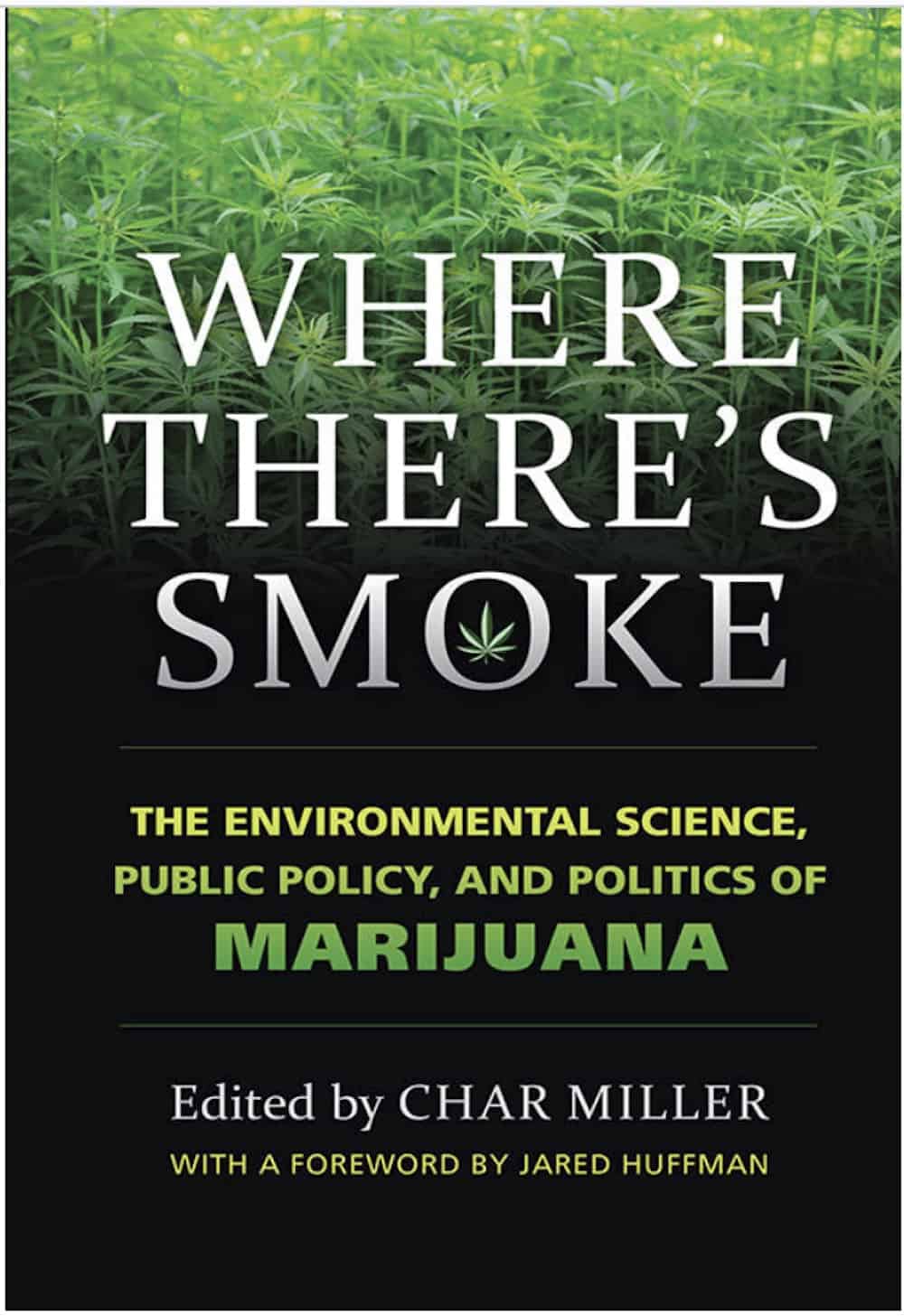“There is nothing inherently ecological about the cannabis plant. The environmental problems associated with cannabis are problems of social policy. The ecological impacts are the result of prohibitionist policy regimes that began in the early part of the 20th Century.” Dr. Anthony Silvaggio, author of two chapters in Where There’s Smoke: The Environmental Science, Public Policy, and Politics of Marijuana, uses this quote to begin panel discussions.
And this book proves his point. It’s a must-have for any so-called cannabis expert, policy maker, academic, journalist, activist, or pot smoker. The environmental impacts, sociology, and modern political history of cannabis in the United States are covered in exhaustive and innovative detail that’s academically rigorous and accessible to civilian readers. Recurring throughout the book are pointed examples of how cannabis prohibition and regulation exacerbate environmental damage and magnify social inequity.
Where There’s Smoke: The Environmental Science, Public Policy, and Politics of Marijuana is a truly cautionary tale, showing how well-intentioned proponents of cannabis legalization often provoke the very environmental and social injustices they hoped to ameliorate. Medical and recreational cannabis regulations invariably keep prices so high that unregulated growers will always have an incentive to continue their work.
A grey fox poisoned by a California trespass grow/ Courtesy of Lt. John Nores Jr.
The fact trespass grows leave ugly ecological scars is not newsworthy, but their increasing numbers and size in the wake of legalization is. The staggering amount of poisonous chemicals used in some of these operations, their ubiquity, and how difficult they are to clean up are all cause for serious concern. These issues are covered in the text by scientists, researchers, and even an officer from a marijuana task force. And they demonstrate how high taxes, fees, contradictory laws, and perpetually dropping prices incentivize farmers …
Read More
Author: John Veit / High Times









